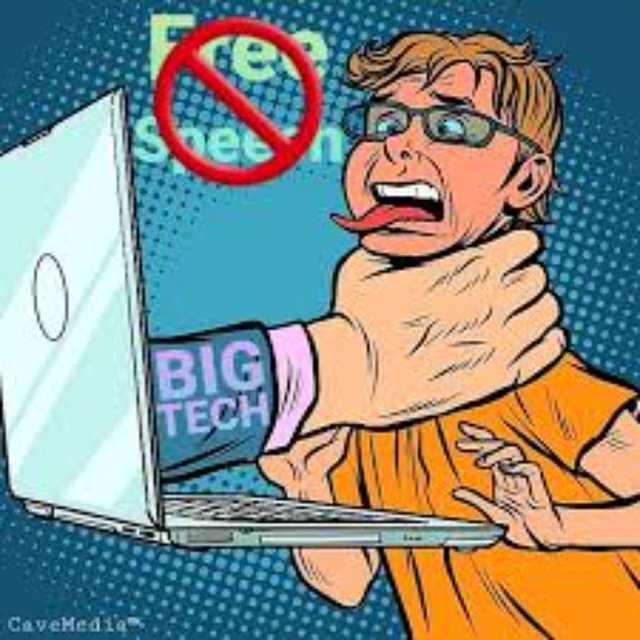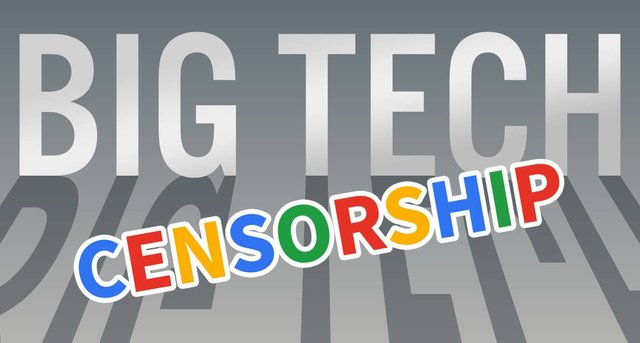Tulsi Gabbard Introduces the “Break Up Big Tech Act”
On Thursday, Rep. Tulsi Gabbard(D) and Rep. Paul Gosar (R) introduced a bill that would treat monopolistic Big Tech companies such as Facebook as publishers under Section 230.
Today I introduced the Break Up Big Tech Act with @RepGosar to remove #Sec230 immunity for tech companies who act like publishers, censoring and manipulating users, treating us and our attention like products to make their billions. https://t.co/kstFKsUL85
Rep. Tulsi Gabbard (@TulsiPress) December 10, 2020
What exactly Section 230? There is a lot of talk about the 23 words that constitute Sec. 230. So, let’s take a look at what Section 230, which originated in says:
“No provider or user of an interactive computer service shall be treated as the publisher or speaker of any information provided by another information content provider"
What this essentially says is that if a company that hosts individual content producers cannot be held liable for what individuals post on that platform. Likewise, users who are on a platform who interact with content, whether it be sharing or liking or commenting, cannot be held for liable for the content they are interacting with. If anything, this is supposed to protect platforms from having to censor, and allows them to allow free speech.
This is why there are people who, while understanding the problem with market dominators and censorship, are saying Section 230 is not the problem.
Electronic Frontier Foundation(EFF) published an article titled, “Section 230 is Good, Actually”.
Jason Kelly, the author, described Section 230 by saying
“Put simply, the law means that although you are legally responsible for what you say online, if you host or republish other peoples’ speech, only those people are legally responsible for what they say.”
For Free Speech advocates such as myself, this is not a bad thing inherently. So where does the abuse come in? How do Big Tech companies use this to censor and exert control over the freedom of information? Because, As the EFF put “Without Section 230, the Internet would be a very different place, one with fewer spaces where we’re all free to speak out and share our opinions.”
The EFF article also boldly stated:
No, Section 230 is not a “hand-out to Big Tech,” or a big tech “immunity, ” or a “gift” to companies. Section 230 protects you and the forums you care about, not just “Big Tech.”
The Verge wrote an article titled that “WHY THE INTERNET’S MOST IMPORTANT LAW EXISTS AND HOW PEOPLE ARE STILL GETTING IT WRONG “, that explained the origins of Sec. 230
“To really understand Section 230, you have to go all the way back to the 1950s. There was a Los Angeles ordinance that said if you have obscene material in your store, you can be held criminally responsible. So a vice officer sees this erotic book that he believes is obscene. Eleazar Smith, who owns the store, is prosecuted, and he’s sentenced to 30 days in jail.”
Sec. 230 protects content hosting platforms, and freedom of expression and discussion, to the point that it has been called the “ The Twenty-Six Words that Created the Internet”. Without it, the open internet as we know it would not exist, and the diversity of speech and content would be much narrower. Yet, Section is 230 is widely criticized. Why? ‘
Well, partially because Section 230 is predicated on the premise that it protects nuetral platforms.
Fast Company published an article titled “Maybe it’s time to strip Section 230’s protections for big tech”, later changed to “Maybe it’s time to take away the outdated loophole that big tech exploits” and then “The 1996 law that made the web is in the crosshairs”. The article describes a sort of backlash at big tech by republicans for tendencies to censor political content on the right:
“Many Republicans believe that Silicon Valley tech companies are determined to suppress conservative content on their platforms.
One of them is Senator Ted Cruz, who had this to say during an October debate with Beto O’Rourke: “Right now, big tech enjoys an immunity from liability on the assumption they would be neutral and fair,” Cruz said. “If they’re not going to be neutral and fair, if they’re going to be biased, we should repeal the immunity from liability so they should be liable like the rest of us.”
Cruz suggested the same thing when questioning Facebook’s Mark Zuckerberg during a Senate hearing in April: “The predicate for Section 230 immunity under the CDA is that you’re a neutral public forum,” Cruz said. “Do you consider yourself a neutral public forum, or are you engaged in political speech, which is your right under the First Amendment?”
Others have across the aisle have pointed out that Facebook effectively acts as a publisher and editor, curating content based upon political lines and adjusting algorithms to assist this. Mark Sullivan for the FCC would wrote:
“But Facebook has always been quick to insist that it’s not a publisher, just a neutral technology platform. There’s a very good reason for that: Publishers are liable for the content they publish on their websites; neutral platforms enjoy the protections in Section 230.
AN ‘OUTDATED LOOPHOLE THAT GOOGLE AND FACEBOOK CAN EXPLOIT’
But in reality, Facebook isn’t so different from a publisher, argues former White House technology staffer Mikey Dickerson. Once companies put their hands (or their algorithms) into the process of making decisions on what content to show individual users, Dickerson says, they’re acting like publishers.
Dickerson, who spent a good chunk of his career at Google, says big web platforms have evolved so far since 1996 that Section 230 no longer fits. ‘I think it’s an outdated loophole that Google and Facebook can exploit,’ he told me.” …
After explaining why totally repealing Section 230 is not the solution, Sullivan would say that the only thing that can really be done by Congress is exactly what Tulsi Gabbard and Paul Gosar have just proposed.
The only real leverage that Congress has is the threat of taking away the protections in Section 230 that tech companies have enjoyed for so long. Wyden was sure to remind Facebook’s Sheryl Sandberg and Twitter’s Jack Dorsey of that when he questioned them during a hearing in September.
Gabbard’s press statement regarding the “Break up Big Tech Act of 2020” read begins as follows:
Today, Rep. Tulsi Gabbard (HI-02) and Rep. Paul Gosar (AZ-04) introduced the Break Up Big Tech Act of 2020, which would remove the Section 230 legal immunity shield that protects interactive computer service providers — like big tech monopolies and social media companies — who engage in certain manipulative practices, including acting as publishers and censoring certain users.
Tulsi Gabbard was directly quoted to have said the following:
“Big tech monopolies like Google and Facebook have made billions of dollars by creating online platforms that monetize our private information, use manipulative and destructive algorithms, and act as publishers choosing what information they want to censor or publish. They undermine our freedom of speech and treat us and our attention as the product, monetizing it to line their pockets with more money without any regard for the damaging consequences. This bill removes the legal immunity that service providers have taken advantage of to act with impunity, while maintaining Section 230 protections for those who provide truly neutral social media platforms or search engines without the use of manipulative algorithms.”
Gosar would also comment:
“Big Tech monopolies continue to censor and manipulate users without consent or liability. The Break Up Big Tech Act revokes liability protections for bad Samaritans and instead empowers users. I am proud to work with Congresswoman Tulsi Gabbard on the Don’t Push My Buttons Act, Stop the Censorship Act, and now the Break Up Big Tech Act to reform Section 230 and protect online consent and free speech instead of censorship and manipulation.”
So what criteria would strip the immunity granted by Sec. 230?
- Selling and displaying personalized as well as contextual advertising without user’s consent
- Collecting data for commercial purposes other than the direct sale of the interactive computer service, i.e. turning the user into a commodity or otherwise monetizing the transmission of content
- Acting as a marketplace in the digital space by facilitating the placement of items into the stream of commerce
- Employing digital products and designs intended to engage and addict users to the service
- Acting as a publisher by using algorithms to moderate or censor content without opt-in from users
The bottom line is that totally repealing section 230 would nothing to stop censorship and would actually hurt free speech, while doing nothing ignores the problem that the Big Tech companies are acting as editors and restrictive publishers rather than neutral service providers — with little realistic opportunity for alternatives to effectively compete because of what is called “the network effect”.
“The network effect” gives the existing Big Tech giants a significant advantage over would-be competition. The network effect is an economic term that describes a service or product whose value is partially dependent on the size of its network of users. Facebook is a good example of this, versus some alternative social media platform with only a few thousand, or even million, people instead of the billion that Facebook has.
This phenomenon is what has lead to the monopolistic dynamic that largely keeps competition from seriously rivaling the tech giants. Moreover, Facebook has employed anti-competitive practices such as buying out companies it sees as a growing threat — Instagram and WhatsApp being examples. WhatsApp was bought for 19 BILLION dollars, shocking many market analysts as it was well above the actual market evaluation.
This however may change very soon, considering that the attorney general from 48 different states(including Guam and DC) grouped together and filed a massive anti-monopoly lawsuit against Facebook just on Tuesday, which seeks to get them to sell WhatsApp and Instagram. What else? The Federal Trade Commission(FTC) filed a lawsuit the same day. Facebook should be in for a rough time.
By disallowing these tech giants to get away with having the immunity privileges granted to neutral parties by Sec 230 when they are instead acting as biased publishers and editors, a step is made towards making not just the playing field more fair, but our democracy.

